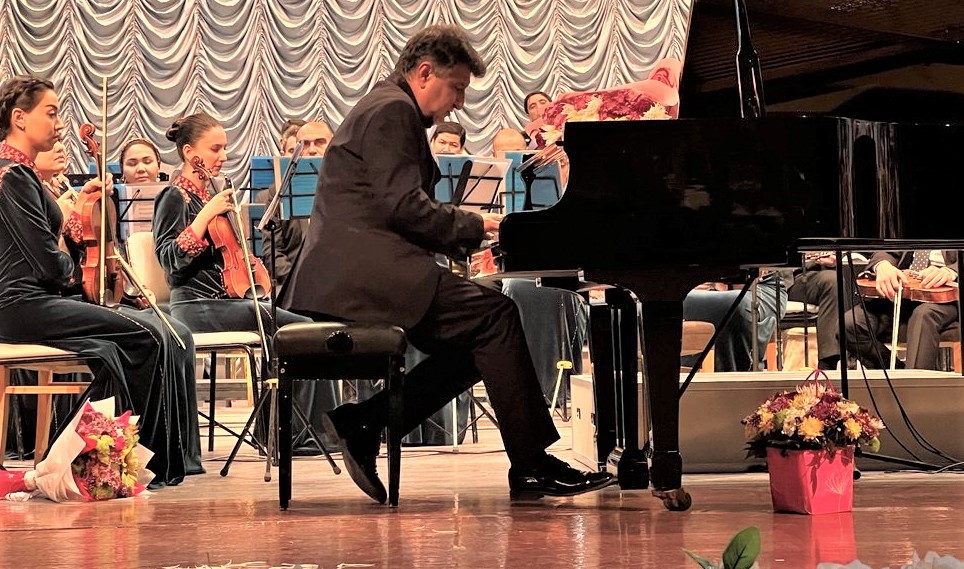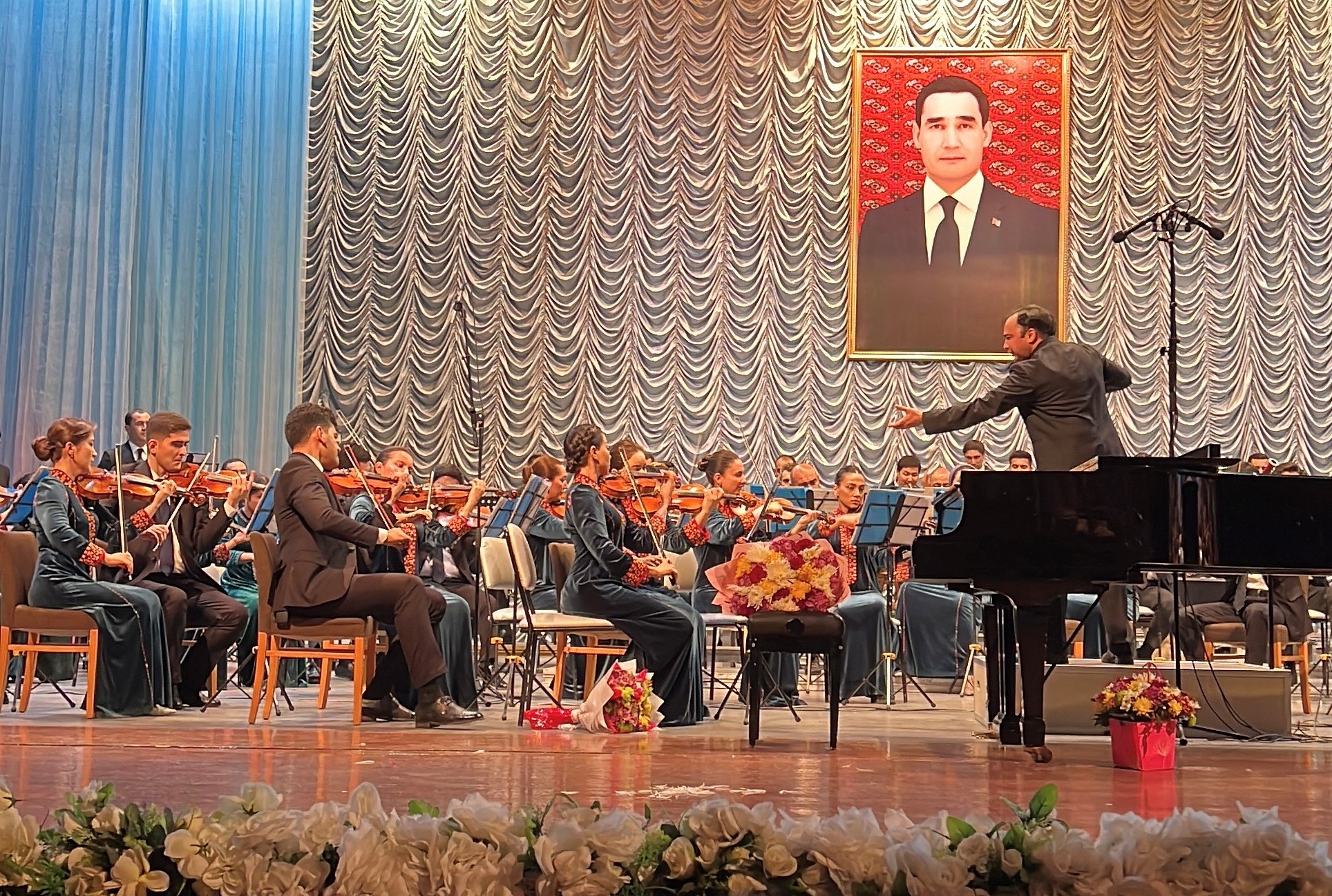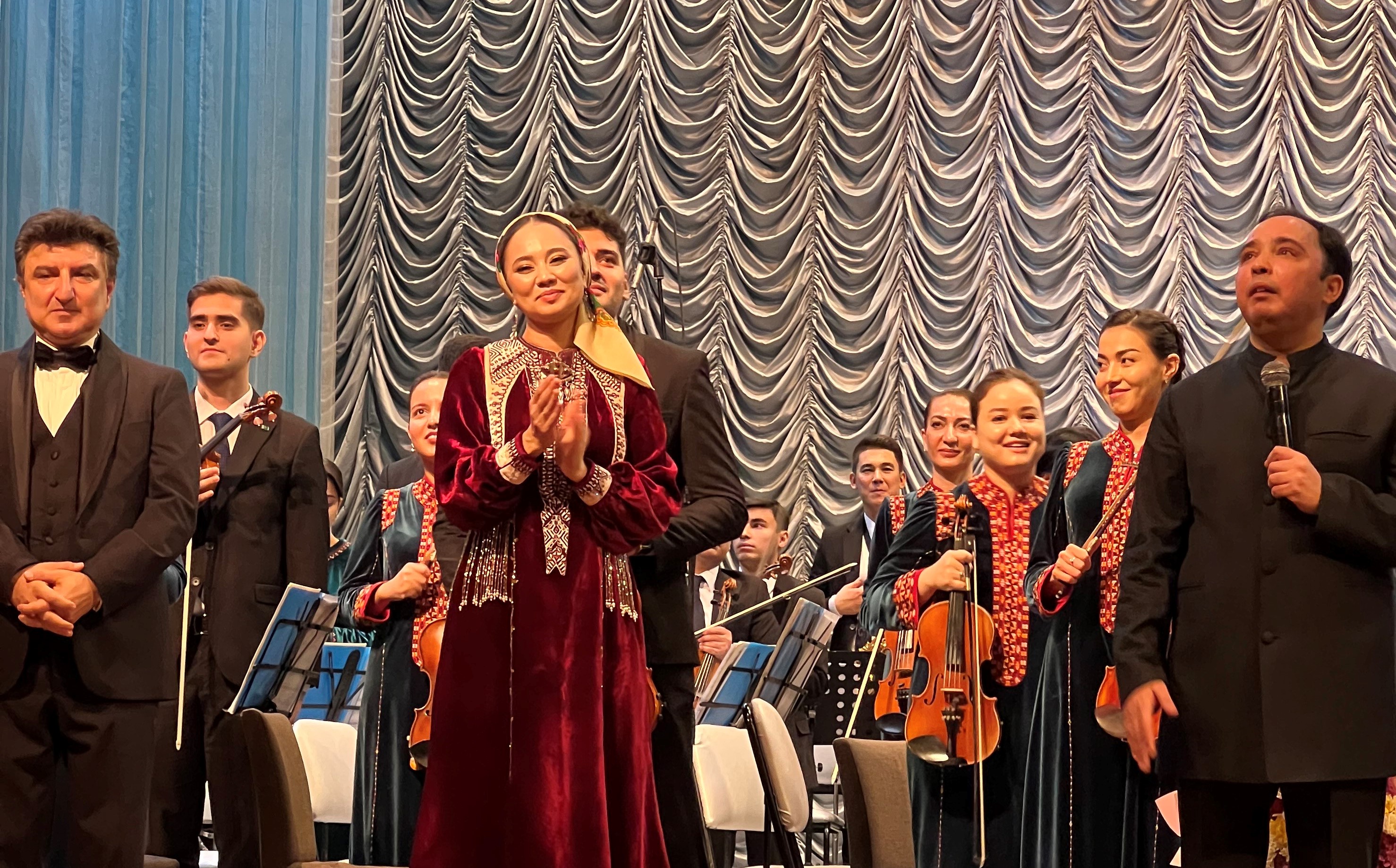Ravel's Music – Beauty You Can Hear

…Once again, masterpieces of world music were performed on the stage of the Magtymguly National Music and Drama Theater. On November 18, the sold-out concert "Bolero" was held, dedicated to the 150th anniversary of Maurice Ravel, the outstanding French composer, a magnificent master of sound color, and a shining example of musical impressionism.
Ravel's music seems to open doors to other worlds, to his fragile, shimmering world, where he tells his endless stories, in which we sense the breath of the East, Spanish heat, French coolness, ghostly mirages, subtle beauty, refinement, and a quiet light in which to warm ourselves.
"Pavane for a Dead Princess," performed by Honored Artist of Turkmenistan Vladimir Mkrtumov, opened a gallery of Ravel's magical images. The pianist touches the keys, and the notes rise like light pollen in a sunbeam. It's as if a young infanta were slowly and majestically walking through the hall. And the light, almost weightless step in silk slippers, and the light breathing, and the bright smile... A vision vanishing into eternity. How carefully the pianist preserves transparency and simplicity, almost in a whisper, tenderly and thoughtfully dissolving into the silence.

A completely different image emerges in Ondine from the piano cycle Gaspard de la nuit (Gaspard de la nuit). Ethereal, enchanting, sparkling. A mermaid of mythical beauty, cold yet alluring. The pianist's playing is unhurried, the breath of the phrases flowing smoothly, creating the illusion of shimmering and rippling water, from which the mermaid beckons invitingly to the traveler, promising her underwater kingdom. But at the end, this ghostly beauty fades, leaving only gentle ripples in its wake.
The Piano Concerto in D major, accompanied by the State Symphony Orchestra of Turkmenistan under the baton of its principal conductor and artistic director, Honored Artist of Turkmenistan Rasul Klychev, sounded brilliant. From the very first bars, the orchestra erupted with a bright, almost solar energy. The pianist's playing was flexible, sparkling, and impetuous. The dialogue with the orchestra is precise and lively, and the finale of the first movement flares up like fireworks, leaving the audience holding its breath at the final brilliant cascade.
After a brief silence, in the second movement, Mkrtumov launched into a tender, pensive cantilena, resembling an intimate confession, around which the orchestra breathed gently, never disturbing its fragile beauty. The third movement is a sudden explosion of energy. The pianist is swift and bold, playing with a vibrant theatricality; his hands are almost invisible, transformed into movement. The orchestra picks up this turbulent whirlwind with an ironic, sparkling character. But despite all this frenzied energy, the sound remains focused, clear, and controlled. The finale is dazzling, triumphant, and the hall erupts in thunderous applause.
The orchestral "Alborada del gracioso" flares like a sunrise over Spain. Strings, woodwinds, and brass instruments exchange mischievous phrases and sparkling jokes. The audience was captivated by this musical dance, full of sparkle, laughter and fiery energy.

And finally, the legendary "Bolero." It rises from a barely audible whisper—a steady, hypnotic rhythm of the snare drum drives the music forward, while the orchestra, instrument after instrument, blossoms like a fiery flower. The sound grows, gaining strength and power. The conductor barely moves, merely directing this inexorable buildup. But gradually, his gestures and movements become broader and more energetic, as if gathering the growing fire into a single stream. At the climax, the Bolero blazes like a glow over the horizon: the brass roars, the strings seethe, the percussion tears the air, and in the finale, explodes in a dazzling, apotheosis-filled radiance.
At that very moment, thunderous applause erupted. The audience was completely enraptured and applauded for a long time, paying tribute to the genius of Maurice Ravel and the wonderful musicians who gave us such a riot of feelings and emotions.

Ravel's music is like a magical thread stretched through time. It glows with a quiet, eternal flame and leads us into a world where sound becomes a miracle, and every note breathes, shines, and carries its own story.
Svetlana KIM



